Thursday 25th August 2016: Today we were meant to go on a cruise on the lake to view the wildlife at the water's edge, namely hippo, but due to an expected high wind there is a change of plan and at 8.30 there are 4 safari vehicles ready to take us to the Mkhuze Reserve. We have an 'African Massage' as we travel over a very rough rocky road in the Zulu ancestors land. They are having the worst drought since the 1940's - it hasn't really rained for 2 years here and this has culled out the weaker animals in the reserve. The scattered Zulu huts and houses don't have running water and they haven't been able to plant their vegetable crops due to the dry conditions, meaning life is really difficult for them.
We enter the 36,000 hectare Mkhuze Reserve and it has a main sealed road and lots of unsealed tracks. We are lucky that Jean is the guide for our jeep - she has been doing this job for 24 years and is passionate about Africa and the animals, - plus she has a wonderful sense of humour.
Firstly we see baboons - they are known to kill baby Impala, possibly why Impala are always in large herds. Our morning includes seeing zebra, nyala (like large deer), Impala, monkeys and some stately giraffe - apparently that sway they get up is because they walk forward with both feet on the right and then both on the left and hold the centre of gravity with the sway of their long neck.
Jean now gets a 2 way call, raises her arm announcing 'Ferrari Safari' and we take off on the dirt track at speed - the reason being, a pregnant female cheetah has been spotted laying under a tree - we get there in plenty of time and she doesn't look like she is going anywhere in a hurry. The cheetah has a flat tail and uses it like a rudder to change direction.
We backtrack to the waterhole in the hope of seeing animals coming in to drink. It has a lookout built over the waterhole with viewing holes so that we are safe and the animals aren't aware that we are there. Not too many today, just some Nyala and Impala.
Afternoon Excursion: Back on the safari vehicles,and we wend our way high up and around the mountains to the top where the Zulu village is. Not withstanding the drought it still looks very inhospitable, so rocky and high up - so I ask "why up here" - the reasons from years back - safety, they could see their enemies coming, it is cooler in summer, the tsetse fly and malaria only existed in the lower regions and nobody would want to take this land from them - all land here is Zululand. They still live in family communities, and the whole village lives like a family community, looking after each other. Our guides here are 100% Zulu, speak perfect English and attempt to explain the Zulu culture to us. They still follow their cultural traditions, along with Western living to some extent - the style of houses show both, some now have electricity and even TV - everything to us though looks primitive. We get a lesson in traditional house making with the thatched roof, see the cattle yard which is a sacred place of the cow - not everyone allowed in here, rituals run by the elders. The cow is a symbol of wealth and is sacred to the Zulu, being used to get a wife, 11 cows worth R10,000 for an 'intact' girl, which apparently they aren't all as the number of cows decreases for not being 'intact' and for each child they might have.
They are Christian, while still keeping their culture of believing in the spirit of the dead and have a special room for speaking to their forefathers, special family meetings etc.
Justice who has been our guide is 37, is not married but has a girlfriend - he has 60 cows, so he thinks he will be able to marry shortly. Both his parents are still alive - it is the duty of the youngest son to care for the parents in old age. In most family communities, a couple of members work for money. Some children are now going to University - they would sell a cow to fund this. Gorgeous children sitting around watching us - a very interesting experience.
Looking at the irrigated cane crops on the way back, I queried the water source as there's not much water in the river. Apparently there is a huge dam covering 19,000 hectares and 90m deep, that is now down to 40%, but to stop planting would put thousands of people out of work, so surely this drought will break in time.
Barbecue tea tonight with a Zulu singing and dancing plus a warrior display.
Animal Watching & a Zulu Village
Thursday, August 25, 2016
 Mkuze, KwaZulu-Natal, South Africa
Mkuze, KwaZulu-Natal, South Africa
Other Entries
-
1Start of our South African Adventure
Aug 1411 days prior Pretoria, South Africaphoto_camera10videocam 0comment 4
Pretoria, South Africaphoto_camera10videocam 0comment 4 -
2The Blue Train
Aug 1510 days prior Kimberley, South Africaphoto_camera38videocam 0comment 6
Kimberley, South Africaphoto_camera38videocam 0comment 6 -
3Cape Town before the tour starts
Aug 178 days prior Cape Town, South Africaphoto_camera38videocam 0comment 5
Cape Town, South Africaphoto_camera38videocam 0comment 5 -
4Tabletop Mountain & Winelands
Aug 187 days prior Cape Town, South Africaphoto_camera22videocam 0comment 0
Cape Town, South Africaphoto_camera22videocam 0comment 0 -
5Journey to the Cape of Good Hope
Aug 196 days prior Cape Town, South Africaphoto_camera20videocam 0comment 1
Cape Town, South Africaphoto_camera20videocam 0comment 1 -
6Bus trip to Cango Caves & A Country Manor
Aug 205 days prior Oudtshoorn, South Africaphoto_camera32videocam 0comment 0
Oudtshoorn, South Africaphoto_camera32videocam 0comment 0 -
7On the bus to Knysa
Aug 214 days prior Knysna, South Africaphoto_camera26videocam 0comment 0
Knysna, South Africaphoto_camera26videocam 0comment 0 -
8Monkeys and Suspension Bridges
Aug 223 days prior Knysna, South Africaphoto_camera22videocam 0comment 2
Knysna, South Africaphoto_camera22videocam 0comment 2 -
9I think it is getting warmer
Aug 232 days prior Durban, South Africaphoto_camera14videocam 0comment 0
Durban, South Africaphoto_camera14videocam 0comment 0 -
10Today it is all about the true Africa-the animals
Aug 241 day prior Mkuze, South Africaphoto_camera28videocam 0comment 3
Mkuze, South Africaphoto_camera28videocam 0comment 3 -
11Animal Watching & a Zulu Village
Aug 25 Mkuze, South Africaphoto_camera32videocam 0comment 2
Mkuze, South Africaphoto_camera32videocam 0comment 2 -
12Swaziland
Aug 261 day later Lobamba, Swazilandphoto_camera22videocam 0comment 0
Lobamba, Swazilandphoto_camera22videocam 0comment 0 -
13Kruger Park - Lion Sands
Aug 272 days later Hazyview, South Africaphoto_camera34videocam 0comment 2
Hazyview, South Africaphoto_camera34videocam 0comment 2 -
14Another Day At Kruger Park
Aug 283 days later Hazyview, South Africaphoto_camera34videocam 0comment 2
Hazyview, South Africaphoto_camera34videocam 0comment 2 -
15Kruger Park to Johannesburg
Aug 294 days later Johannesburg, South Africaphoto_camera40videocam 0comment 0
Johannesburg, South Africaphoto_camera40videocam 0comment 0 -
16Victoria Falls, the Town & Hotel
Aug 305 days later Victoria Falls, Zimbabwephoto_camera18videocam 0comment 2
Victoria Falls, Zimbabwephoto_camera18videocam 0comment 2 -
17A Day in Botswana
Aug 316 days later Victoria Falls, Zimbabwephoto_camera40videocam 0comment 3
Victoria Falls, Zimbabwephoto_camera40videocam 0comment 3 -
18Victoria Falls, not the town, or the hotel
Sep 017 days later Victoria Falls, Zimbabwephoto_camera42videocam 0comment 3
Victoria Falls, Zimbabwephoto_camera42videocam 0comment 3 -
19A Zimbabwe School Visit
Sep 028 days later Johannesburg, South Africaphoto_camera30videocam 0comment 1
Johannesburg, South Africaphoto_camera30videocam 0comment 1 -
20Nairobi
Sep 039 days later Nairobi, Kenyaphoto_camera46videocam 0comment 4
Nairobi, Kenyaphoto_camera46videocam 0comment 4 -
21Amboseli National Park
Sep 0511 days later Amboseli Game Reserve, Kenyaphoto_camera36videocam 0comment 0
Amboseli Game Reserve, Kenyaphoto_camera36videocam 0comment 0 -
22Aberdare National Park
Sep 0612 days later Aberdare National Park, Kenyaphoto_camera26videocam 0comment 0
Aberdare National Park, Kenyaphoto_camera26videocam 0comment 0 -
23Aberdare Park to Shaba Reserve
Sep 0713 days later Shaba National Reserve, Kenyaphoto_camera30videocam 0comment 2
Shaba National Reserve, Kenyaphoto_camera30videocam 0comment 2 -
24Samburu Reserve
Sep 0814 days later Shaba National Reserve, Kenyaphoto_camera36videocam 0comment 0
Shaba National Reserve, Kenyaphoto_camera36videocam 0comment 0 -
25Shaba to Mount Kenya
Sep 0915 days later Nanyuki, Kenyaphoto_camera36videocam 0comment 0
Nanyuki, Kenyaphoto_camera36videocam 0comment 0 -
26Visit to 'Mission in Action' the orphanage
Sep 1016 days later Nakuru, Kenyaphoto_camera42videocam 0comment 0
Nakuru, Kenyaphoto_camera42videocam 0comment 0 -
27Flamingos
Sep 1117 days later Nakuru, Kenyaphoto_camera30videocam 0comment 1
Nakuru, Kenyaphoto_camera30videocam 0comment 1 -
28A feeding Frenzy
Sep 1218 days later Narok, Kenyaphoto_camera28videocam 0comment 1
Narok, Kenyaphoto_camera28videocam 0comment 1 -
29Lions at it again
Sep 1319 days later Narok, Kenyaphoto_camera34videocam 0comment 0
Narok, Kenyaphoto_camera34videocam 0comment 0
Comments
2025-05-22
Comment code: Ask author if the code is blank

 Mkuze, KwaZulu-Natal, South Africa
Mkuze, KwaZulu-Natal, South Africa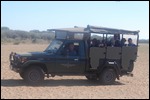
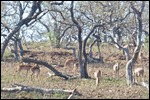
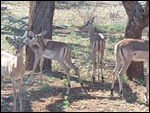
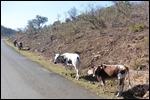
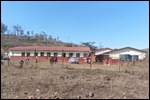

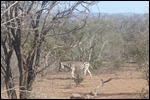
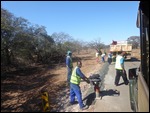
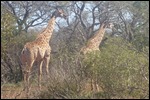
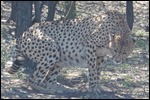
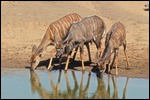
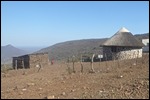
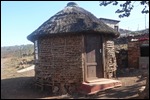
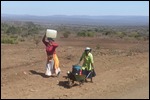
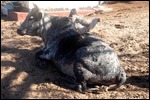
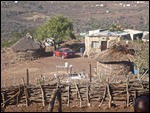
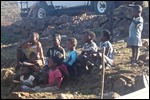

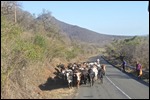
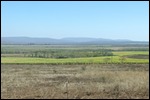
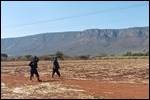
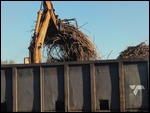
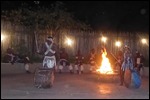




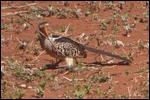
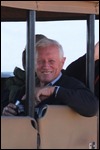
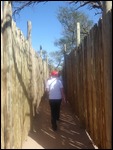
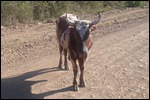
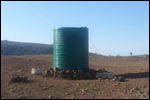
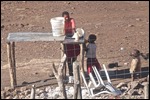
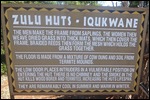
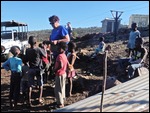
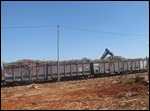
Jenny MacKay
2016-08-26
What an amazing experience you're having. Did John do the "John Wayne" thing and ride that jeep with zulu's and rhinos coming at him!!? Enjoy!
valexten
2016-08-27
Wow, it certainly is a culture experience!!! Not sure whether I would be safe in that "Jeep"!!!! Makes us so lucky to be in Australia!!! Bit of home news......Raining today and Kevin is at the Wonthella bowling classic....so I guess they will be on and off the green a few times!!! Tomorrow suppose to fine up!!! Went to Dowerin field day during the week and the crops all the way are awesome and so are the wildflowers, sea of colour"" Enjoy !!!